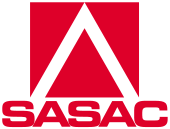State-owned Assets Supervision and Administration Commission of the State Council
| 国务院国有资产监督管理委员会 | |
 Logo of SASAC | |
 Gate of SASAC | |
| Agency overview | |
|---|---|
| Formed | 10 March 2003 |
| Headquarters | Beijing |
| Agency executive | |
| Parent agency | State Council of the People's Republic of China |
| Website | www |
| State-owned Assets Supervision and Administration Commission of the State Council | |||||||
|---|---|---|---|---|---|---|---|
| Simplified Chinese | 国务院国有资产监督管理委员会 | ||||||
| Traditional Chinese | 國務院國有資產監督管理委員會 | ||||||
| |||||||
| Abbreviation | |||||||
| Simplified Chinese | 国资委 | ||||||
| Traditional Chinese | 國資委 | ||||||
| Literal meaning | State Assets Commission | ||||||
| |||||||
 |
|---|
|
|
The State-owned Assets Supervision and Administration Commission of the State Council (SASAC) is a special commission of the People's Republic of China, directly under the State Council. It was founded in 2003 through the consolidation of various other industry-specific ministries.[1] SASAC is responsible for managing state-owned enterprises (SOEs), including appointing top executives and approving any mergers or sales of stock or assets, as well as drafting laws related to SOEs.[2]
As of 2023, its companies had a combined assets of CN¥871 trillion (~US$116 trillion), revenue of more than CN¥85.37 trillion (~US$12 trillion)[3][4] with a total profit of 4.63 trillion yuan according to a report from SASAC.[5] Vice Premier Zhang Guoqing is responsible for the supervision of the SASAC.
History
SASAC was formed in 2003 to consolidate industry-specific bureaucracies.[6]: 15
In 2017, the State Council approved a change of SASAC's mission from administering SOEs to channeling state capital into strategic economic sectors.[6]: 16
Significance
SASAC oversees China's SOEs in nonfinancial industries deemed strategically important by the State Council, including national champions in areas like energy, infrastructure, strategic minerals, and civil aviation.[6]: 79
The state-owned investment companies of SASAC serve as a mechanism through which the Chinese government can influence the market through the use of capital rather than government directive.[6]: 16
Central SOEs
As of 2023, SASAC currently oversees 97 centrally owned companies.[2][7] These central SOEs (yangqi) are SOEs that cover industries deemed most vital to the national economy.[8]: 6 Companies directly supervised by SASAC are continuously reduced through mergers according to the state-owned enterprise restructuring plan with the number of SASAC companies down from over 150 in 2008.[9]
Institutions affiliated to SASAC
- Information Center
- Technological Research Center for Supervisory Panels Work
- Training Center
- Economic Research Center
- China Economics Publishing House
- China Business Executives Academy, Dalian
Industrial associations
Affiliated industrial associations include:
- China Federation of Industrial Economics [1]
- China Enterprise Confederation [2]
- China Association for Quality [3]
- China Packaging Technology Association [4]
- China International Cooperation Association for SMEs [5]
- China General Chamber of Commerce [6]
- China Federation of Logistics and Purchasing [7]
- China Coal Industry Association [8]
- China Machinery Industry Federation [9]
- China Iron and Steel Association
- China Petroleum and Chemical Industry Association [10]
- China National Light Industry Associations [11]
- China National Textile Industry Council [12]
- China Building Materials Industry Association [13]
- China Nonferrous Metals Industry Association [14]
Leadership
Directors
| Name | Chinese name | Took office | Left office |
|---|---|---|---|
| Li Rongrong | 李荣融 | April 2003 | August 2010 |
| Wang Yong | 王勇 | August 2010 | March 2013 |
| Jiang Jiemin | 蒋洁敏 | March 2013 | September 2013 |
| Zhang Yi | 张毅 | December 2013 | February 2016 |
| Xiao Yaqing | 肖亚庆 | February 2016 | May 2019 |
| Hao Peng | 郝鹏 | 17 May 2019 | 3 February 2023 |
| Zhang Yuzhuo | 张玉卓 | February 2016 | Incumbent |
See also
- China Beijing Equity Exchange
- List of government-owned companies of China
- Rostec
- State-owned Enterprises Commission, the equivalent in Taiwan (ROC)
- Federal Agency for State Property Management
References
- ^ Starr, John Bryan (2010-08-31). Understanding China [3rd Edition]: A Guide to China's Economy, History, and Political Culture. Farrar, Straus and Giroux. p. 99. ISBN 978-0-8090-1651-8. OCLC 932217175.
- ^ a b Davis, Stuart (2023). Sanctions as War: Anti-Imperialist Perspectives on American Geo-Economic Strategy. Haymarket Books. p. 112. ISBN 978-1-64259-812-4. OCLC 1345216431.
- ^ "Value of China's State-owned assets stable in 2023". CHINA DAILY. November 5, 2024. Archived from the original on November 10, 2024. Retrieved November 10, 2024.
- ^ "China's SOEs log revenue growth in 2023". XINHUANET. January 29, 2024. Archived from the original on September 14, 2024. Retrieved September 14, 2024.
- ^ "Flying High: China's SOEs are growing in prominence in its economy". CKGSB Knowledge. October 24, 2024. Archived from the original on December 24, 2024. Retrieved December 24, 2024.
- ^ a b c d Liu, Zongyuan Zoe (2023). Sovereign Funds: How the Communist Party of China Finances its Global Ambitions. The Belknap Press of Harvard University Press. doi:10.2307/jj.2915805. ISBN 9780674271913. JSTOR jj.2915805.
- ^ "央企名录" [List of Central SOEs]. Official website of SASAC (in Chinese). 20 December 2016. Archived from the original on 24 October 2016. Retrieved 10 February 2017.
- ^ Chen, Muyang (2024). The Latecomer's Rise: Policy Banks and the Globalization of China's Development Finance. Ithaca and London: Cornell University Press. ISBN 9781501775857.
- ^ "China gives state firms $8 bln to combat slowdown". Reuters. November 28, 2008. Archived from the original on October 15, 2020. Retrieved July 2, 2017.
- ^ a b Massot, Pascale (2024). China's Vulnerability Paradox: How the World's Largest Consumer Transformed Global Commodity Markets. New York, NY, United States of America: Oxford University Press. p. 202. ISBN 978-0-19-777140-2.
